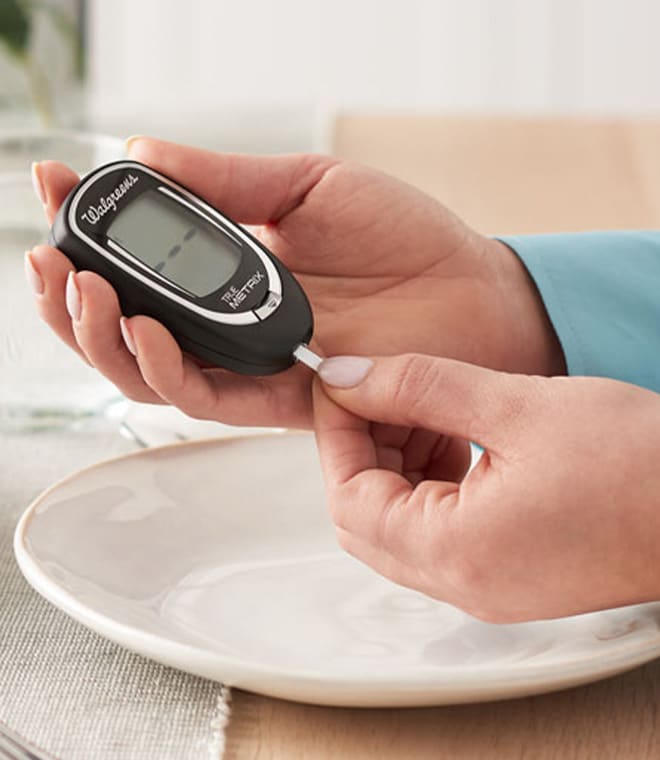Health
Diabetes and the keto diet: What you need to know
By Michelle Katz, MS, RD, certified diabetes care and education specialist Dec 31, 2024 • 7 min
If you have diabetes, limiting the number of carbs you eat can help you better control your blood sugar levels. One diet that focuses on reducing carbohydrates is the ketogenic, or keto, diet. Before trying this type of plan, you should be aware of the risks and benefits.
What is the keto diet?
Developed during the 1920s, the ketogenic diet is a high-fat, low-carbohydrate eating plan. Although approaches vary, this type of diet typically involves getting about 60% of your daily calories from fats, 30% from proteins and 10% from carbohydrates. Those following the keto diet typically cut down on select types of foods, including:
- Alcohol
- Sweets
- Beverages that contain sugar
- Beans
- Fruits that contain large amounts of sugars
- Starchy vegetables
- Pasta, bread, rice and other starchy foods
In place of these foods, those adhering to the keto diet often eat:
- Beef, pork, turkey and chicken
- Fish and seafood
- Eggs
- Avocados
- Olive, coconut and avocado oil, as well as other monounsaturated and polyunsaturated oils
- Butter and cream
- Nuts and seeds
- Unprocessed cheese
- Low-carb vegetables, such as cauliflower, broccoli, Brussels sprouts, asparagus, bell peppers, cucumbers, celery, onions, garlic and mushrooms
How the keto diet works
To understand what the keto diet does, you first need to know a little about how the body produces energy. Carbohydrates in foods are the body’s preferred energy source. They get broken down into glucose, which gets absorbed into the bloodstream. As blood glucose levels rise, the body releases insulin. This hormone allows cells to absorb glucose and then convert it into energy. Any excess glucose gets stored first as glycogen in the muscles and liver, and then as body fat.
If your body requires energy but doesn’t have carbohydrates to burn, it enters a state called ketosis and begins burning fats called ketones to drive energy production. The goal of the keto diet is to put the body in a continued state of ketosis by dramatically reducing carbohydrates. Doing so encourages the body to burn fat, which can lead to weight loss.
Understanding diabetes
Diabetes develops when your blood sugar levels are abnormally high. With type 1 diabetes, the pancreas doesn’t produce enough or any insulin, so glucose in the bloodstream can’t become properly absorbed by cells. In people with type 2 diabetes, the cells don’t respond normally to insulin, so insufficient glucose gets absorbed.
Potential benefits of the keto diet for diabetes
Healthcare providers often advise people with diabetes to cut back on carbohydrates to better control their blood sugar levels. The ketogenic diet takes that a step further, reducing carbohydrates even more than a traditional diabetic diet. As a result, strictly following the diet can reduce blood sugar levels. Keeping blood sugar levels within normal range can reduce the risk of developing complications due to diabetes.
The keto diet may also benefit people with type 2 diabetes due to its potential for weight loss. Being overweight or obese contributes to insulin resistance, and losing weight often improves how cells respond to insulin. In some cases, weight loss may reduce the need for medications to control blood sugar levels in people with type 2 diabetes.
Drawbacks and risks of the keto diet for diabetes
Although there are some potential benefits to the keto diet for diabetes, there are also some downsides and health risks that you should be aware of before you give it a try. These include:
- Difficult maintenance: Because the keto diet is so restrictive, sticking with it long-term to manage diabetes can be difficult. If you stop following the diet, you may regain weight, and your blood sugar levels may return to previous levels.
- Hypoglycemia: Reducing your carbohydrate levels too much can result in hypoglycemia, or low blood sugar, which can be dangerous. You’re especially at risk for developing this condition if you take medications or use insulin to manage diabetes. Those with type 1 diabetes are particularly prone to hypoglycemia, but it can occur in people with type 2 diabetes as well. Some symptoms of low blood sugar include dizziness, confusion, rapid heartbeat, weakness, headaches and seizures.
- Ketoacidosis: When levels of ketones in the blood become too high, ketoacidosis, a life-threatening condition where blood becomes acidic, can develop. People who use insulin to manage their diabetes are at an increased risk of developing ketoacidosis while following the keto diet.
- Impact on heart health: Consuming too much saturated fat can raise your risk for heart disease, a condition that people with diabetes are already more likely to develop. If you choose to follow the keto diet, your healthcare provider may recommend limiting red meat, cheese, cream, butter and other foods high in saturated fat. If you have high cholesterol, liver disease or kidney disease, following a meal plan that includes fruits and vegetables, whole grains, beans, nuts and moderate amounts of lean poultry, fish and dairy may be a better choice than a keto diet.
- Nutritional deficiencies: Following the keto diet may lead to deficiencies in certain vitamins and minerals, making supplementation necessary. Constipation may also result, as keto eating patterns are often low in fiber. Consider low-carb fiber sources or fiber supplements to support regularity.
Is the keto diet right for you?
Changing your diet can help you better manage your diabetes, but the key is finding a diet that fits your health needs and will be easy to follow over the long term. The keto diet may be a good solution for some people, but it may not be the best option for others. That’s why discussing healthy eating with your healthcare provider is important. They can weigh the pros and cons of different diets for diabetes with you and supervise your progress to help you get the best sustainable results possible.
Updated December 2024.
- https://www.health.harvard.edu/staying-healthy/should-you-try-the-keto-diet
- https://health.clevelandclinic.org/what-is-the-keto-diet-and-should-you-try-it
- https://consultqd.clevelandclinic.org/ketogenic-diets-in-the-management-of-type-1-diabetes-safe-or-safety-concern
- https://health.clevelandclinic.org/is-the-ketogenic-diet-safe-for-people-with-diabetes
- https://med.stanford.edu/news/all-news/2022/070/keto-mediterranean-diet-diabetes.html
- https://www.ncbi.nlm.nih.gov/books/NBK499830/
- https://www.ncbi.nlm.nih.gov/books/NBK459280/
- https://extension.okstate.edu/fact-sheets/carbohydrates-in-the-diet.html



